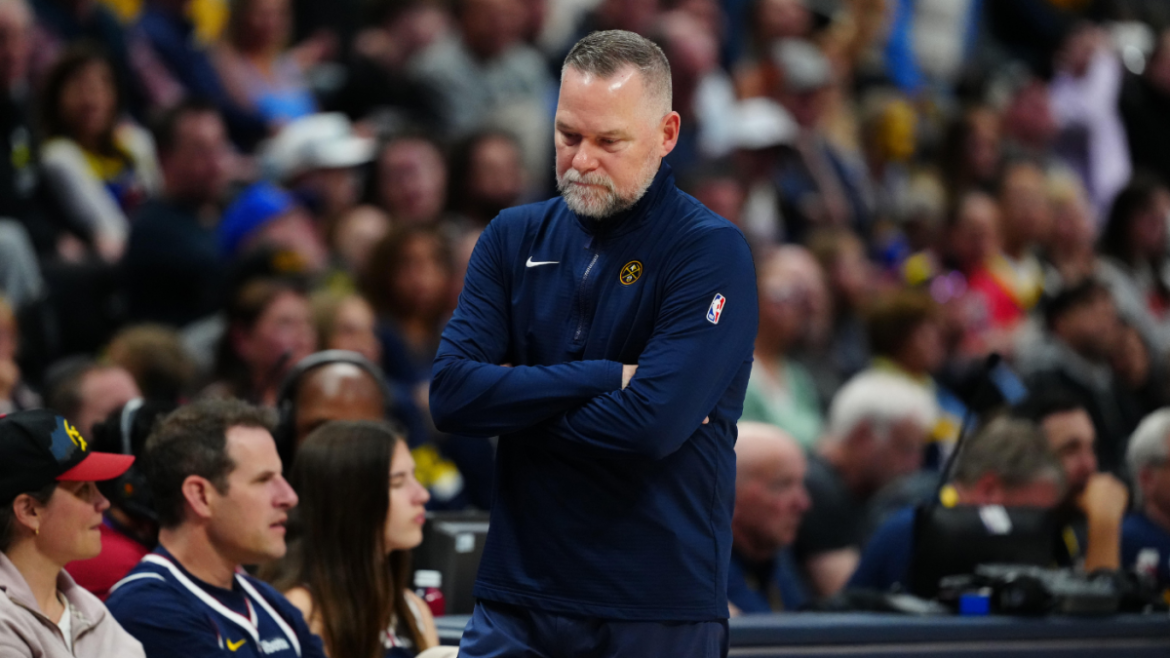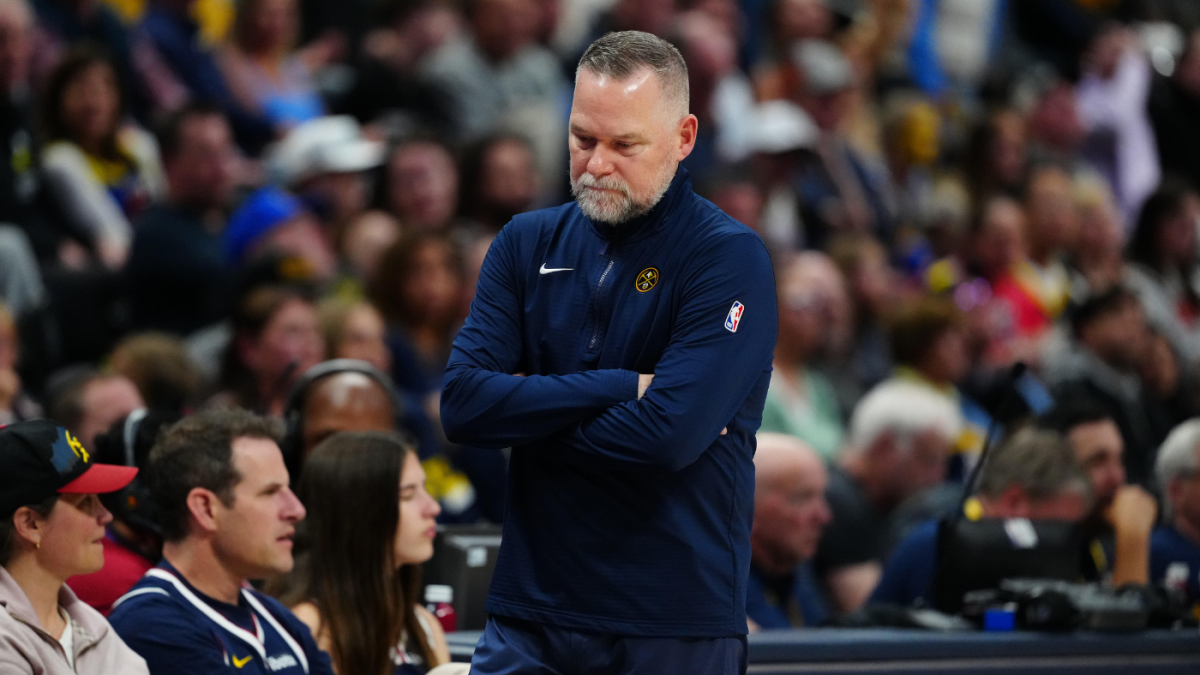Michael Malone’s MVP Comments: A Closer Look at the Controversy and Clarifications
The landscape of NBA MVP discussions often ignites passionate conversations among fans, analysts, and former players. Recently, Michael Malone, former head coach of the Denver Nuggets and a respected NBA figure, became a focal point for such discourse after remarks about the MVP race involving Nikola Jokić and Shai Gilgeous-Alexander sparked debate. Understanding the nuances behind Malone’s statements, the reactions they provoked, and his subsequent clarifications sheds light on the complexity of MVP considerations and media narratives.
—
Background: Initial Comments and Fan Reaction
Michael Malone’s remarks came shortly after the Oklahoma City Thunder defeated the Minnesota Timberwolves in Game 1 of the Western Conference Finals. Malone initially suggested that Shai Gilgeous-Alexander could be considered the MVP for the 2024-25 season, implying that Gilgeous-Alexander’s performance warranted MVP recognition over Nikola Jokić, the Denver Nuggets star and three-time MVP award winner.
This comment immediately drew attention and provoked a mixed reaction, especially from Denver fans and Nuggets supporters. Given Malone’s history as Jokić’s former coach, many expected unequivocal support from him for Jokić’s MVP candidacy. The perceived wavering stance was met with candid criticism and questions regarding Malone’s loyalty and perspective.
—
The Clarification: Malone’s Reaffirmation of Support for Jokić
Following the backlash, Malone took steps to clarify his position. He explicitly stated that Nikola Jokić remains his MVP choice. Malone emphasized that if he held an official vote, he would cast it for Jokić again, reinforcing Jokić’s legitimacy as an enduring MVP-caliber player. This statement aimed to dispel confusion and affirm his respect for Jokić’s contributions and achievements.
Malone articulated that his mentioning of Gilgeous-Alexander was an acknowledgment of the Thunder star’s rising impact and the way he’s showcased his talents during the season and playoffs—not a dismissal of Jokić’s excellence. This distinction highlighted the difference between recognizing emerging talent and endorsing the MVP award, which traditionally reflects consistent elite performance over the entire regular season.
—
The Confusion: Mixed Messages and Media Interpretation
The crux of the controversy centered on how Malone’s comments were reported and perceived. Various outlets highlighted Malone’s initial statement about Gilgeous-Alexander showing MVP-worthy traits, sometimes overshadowing his later clarification of support for Jokić. Additionally, some reports included garbled text or irrelevant filler content, muddying a straightforward narrative and adding to public confusion.
This scenario demonstrates the importance of context and precise communication in sports commentary and media coverage. Malone’s remarks were nuanced but boiled down in the press to a simple “Malone called Gilgeous-Alexander MVP,” which was not an accurate representation of his overall viewpoint.
—
The Impact on Fan and Analyst Discourse
Malone’s comments, clarification, and the subsequent media cycle illustrate how MVP conversations intertwine with fan loyalty, player narratives, and career legacies. For Denver enthusiasts, affirmations of Jokić’s MVP status resonate strongly given his instrumental role in their success, including multiple league MVP awards.
Conversely, Gilgeous-Alexander’s rise and recognition mark a changing of the guard narrative where emerging stars challenge established hierarchies. Malone’s acknowledgment of Gilgeous-Alexander’s excellence amplifies the excitement around this evolving storyline, even if it didn’t translate into reassigning MVP votes.
Former coaches and analysts, such as George Karl, also chimed in on the matter, reflecting the layered opinions circulating in the basketball community. Malone’s role as an ESPN analyst post-coaching further broadens his platform, raising the stakes for clarity and consistency in his public commentary.
—
Understanding MVP Voting Dynamics Through Malone’s Perspective
Malone’s remarks and his corrections also offer a window into MVP voting dynamics. The MVP award is a measure of season-long impact combined with team success and individual excellence. Malone’s perspective underscores that while players like Gilgeous-Alexander can have MVP-worthy moments and shine brightly at times, the cumulative body of work often favors proven, consistent stars like Jokić.
This reasoning aligns with broader debates among fans and experts regarding the criteria that define MVP worthiness. Recognition of emerging players does not necessarily equate to an endorsement of their readiness for MVP honors, illustrating the need to separate momentary brilliance from season-spanning dominance.
—
Conclusion: Michael Malone’s MVP Comments as a Microcosm of NBA Narrative Complexity
The discourse surrounding Michael Malone’s MVP remarks and subsequent clarifications reflects the intricate interplay of player performance, media portrayal, and public perception in modern sports culture. Malone’s initial praise for Shai Gilgeous-Alexander’s emergence, followed by a firm declaration of Nikola Jokić as his MVP choice, highlights how narratives can evolve and be misinterpreted in fast-moving sports conversations.
Ultimately, Malone’s experience serves as a reminder of the multifaceted nature of evaluating MVP candidacy—where respect for rising talent and acknowledgment of established excellence coexist, and clear communication is paramount to prevent misunderstandings. The incident enriches the ongoing dialogue on basketball greatness, spotlighting both the achievements of Nikola Jokić and the promising ascent of Shai Gilgeous-Alexander amid the electrifying environment of NBA playoffs and awards talks.





